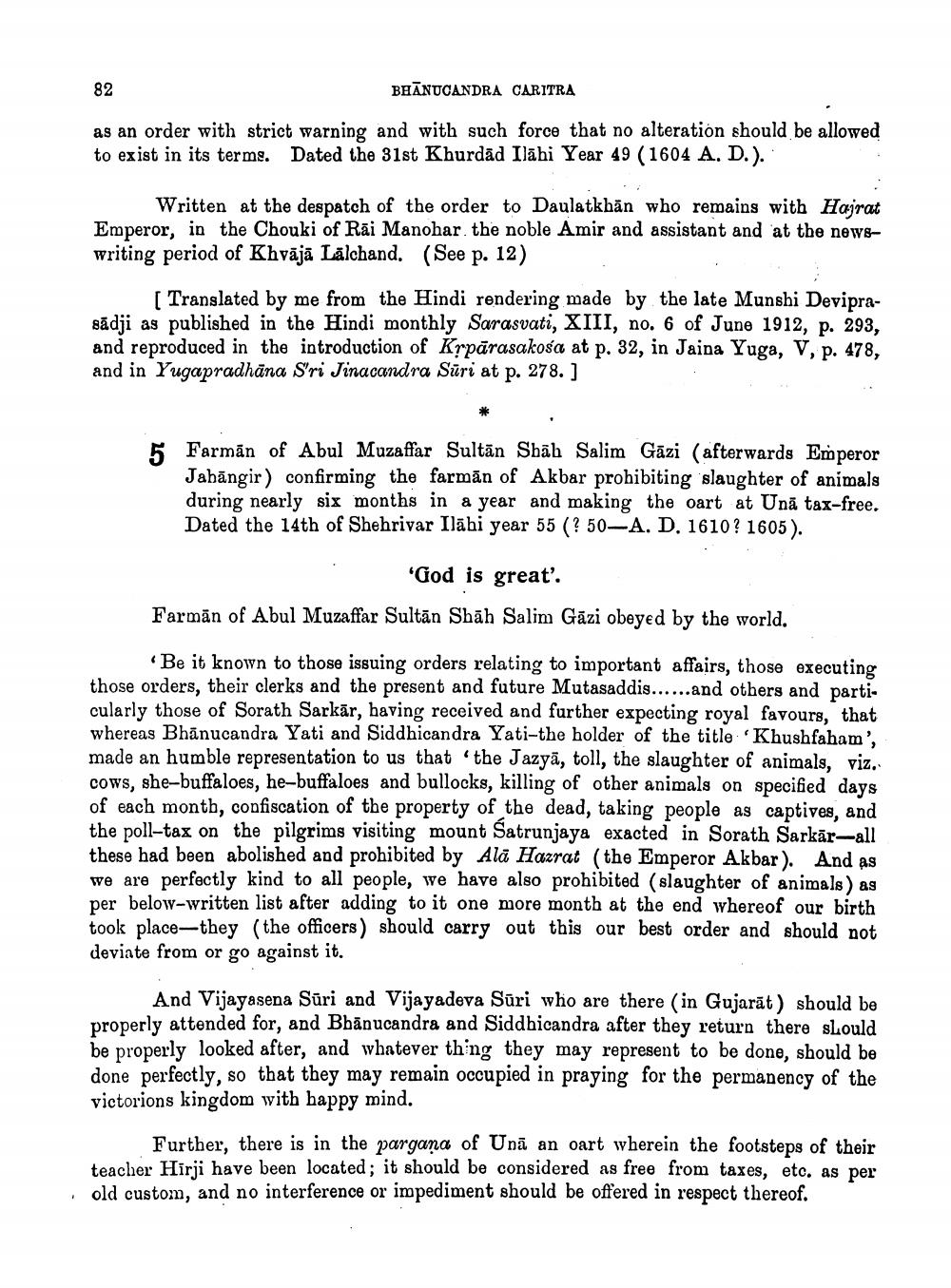________________
82
BHĀNUCANDRA CARITRA
as an order with strict warning and with such force that no alteration should be allowed to exist in its terms. Dated the 31st Khurdād Ilāhi Year 49 (1604 A. D.).
Written at the despatch of the order to Daulatkhãn who remains with Hairat Emperor, in the Chouki of Rāi Manohar the noble Amir and assistant and at the news writing period of Khvājā Lālchand. (See p. 12)
[Translated by me from the Hindi rendering made by the late Munshi Deviprasādji as published in the Hindi monthly Sarasvati, XIII, no. 6 of June 1912, p. 293, and reproduced in the introduction of Krpārasakośa at p. 32, in Jaina Yuga, V, p. 478, and in Yugapradhāna Sri Jinacandra Sūri at p. 278. ]
5
Farmān of Abul Muzaffar Sultān Sbāh Salim Gāzi (afterwards Emperor Jabāngir) confirming the farmān of Akbar prohibiting slaughter of animals during nearly six months in a year and making the oart at Unā tax-free. Dated the 14th of Shehrivar Ilābi year 55 (? 50-A.D. 1610? 1605).
'God is great'.
Farman of Abul Muzaffar Sultan Shāh Salim Gāzi obeyed by the world.
Be it known to those issuing orders relating to important affairs, those executing those orders, their clerks and the present and future Mutasaddis......and others and particularly those of Sorath Sarkār, having received and further expecting royal favours, that whereas Bhānucandra Yati and Siddhicandra Yati-the holder of the title Khushfaham', made an humble representation to us that the Jazyā, toll, the slaughter of animals, viz. Cows, she-buffaloes, he-buffaloes and bullocks, killing of other animals on specified days of each month, confiscation of the property of the dead, taking people as captives, and the poll-tax on the pilgrims visiting mount Satrunjaya exacted in Sorath Sarkār-all these had been abolished and prohibited by Ala Hazrat (the Emperor Akbar). And as we are perfectly kind to all people, we have also prohibited (slaughter of animals) as per below-written list after adding to it one more month at the end whereof our birth took place they (the officers) should carry out this our best order and should not deviate from or go against it.
And Vijayasena Sūri and Vijayadeva Sūri who are there (in Gujarāt) should be properly attended for, and Bhānucandra and Siddhicandra after they return there should be properly looked after, and whatever thing they may represent to be done, should be done perfectly, so that they may remain occupied in praying for the permanency of the victorions kingdom with happy mind.
Further, there is in the pargana of Unā an oart wherein the footsteps of their teacher Hirji have been located; it should be considered as free from taxes, etc. as per · old custom, and no interference or impediment should be offered in respect thereof.




